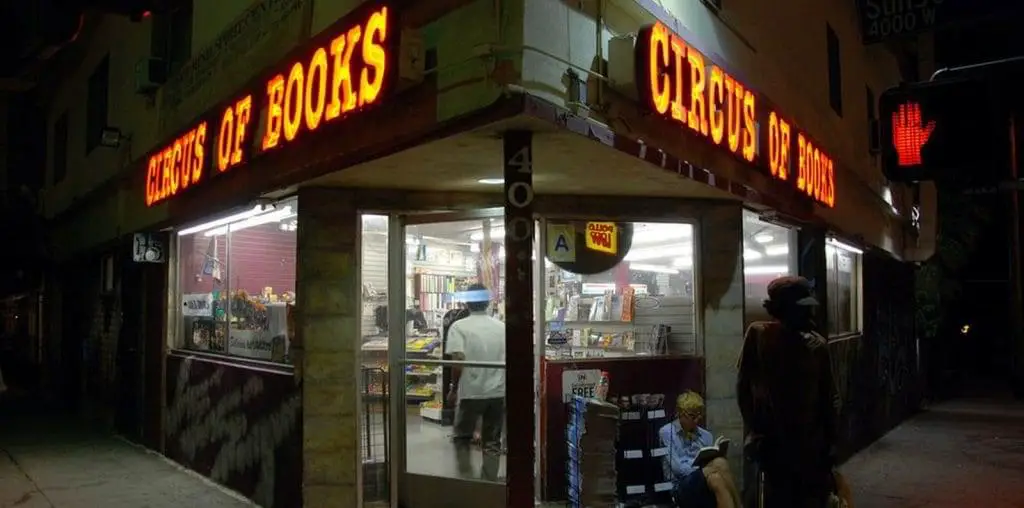
What happens when a mild-mannered, successful yuppie-type gets mugged and fights back, inadvertently killing his mugger in the process? Well, in the somewhat overwrought melo-thriller “Addiction”, said yuppie-type apparently becomes an unhinged psycho killer, obsessed with the “highs” of cold-blooded murder. It may sound like the premise for a by-the-numbers genre piece, but be assured, “Addiction” is far too ambitious for mere cliché-indulging. No, this is a film that wants to be taken seriously indeed. It aims to please horror and drama fans alike and for part of the time at least, it does. Though despite some sturdy acting and intriguing plot turns, “Addiction” is ultimately too unfocused and oddly truncated to be truly effective. Like Tarantino’s way-too-long revenge opus, there’s a really good movie in here somewhere, but this cut just isn’t it.
Bobby (Frank Franconeri) is the yuppie-type-cum-psycho-killer. But before he’s out stabbing homeless men and prostitutes in Riverside Park, our Bobby is a hard-working businessman and loving husband to his wife Lisa (Mim Granahan, in a thankless role). He’s living the American Dream, if your accepted version involves the whole white picket fence/suburban house thing and the daily commute to the Big Apple with thousands of other Americans. But I’ll be damned if our Bobby isn’t one happy S.O.B., what with his pretty wife and their baby talk and their sheer domestic bliss! Just when you’re wondering what could possibly ever go wrong here (I mean the movie’s called “Addiction”, so naturally I’m thinking drugs or booze or even sex), Bobby is headed home from a late night at the office when he gets mugged. Forever the mild-mannered, picked-on one, Bobby snaps and turns his assailant’s knife back on him, stabbing him repeatedly until he doesn’t move. This being New York, of course no one sees Bobby doing this and he books it, completely and utterly freaked out. At first, he’s disgusted with himself, rightfully so, and loses sleep to the haunting imagery of those few tragic moments. But then a funny thing happens: Bobby realizes he may actually be turned on by what he did. Not only that, he may need to do it again… and again and again. Thus begins his downward spiral of random murders, insomnia, estrangement from his wife, and the rapid slipping away of his own sanity, you know, standard issue falling-apart-at-the-seams s**t.
The meandering, slightly over-stuffed plot of “Addiction” includes two subplots to speak of, their significance to the proceedings highly suspect at best. The first involves Bobby’s good-for-nothing junkie cousin Frankie (screenwriter Joshua Nelson), who keeps popping by Bobby’s work looking for a handout. He swears to Bobby that he’s cleaned up and just needs some cash to get back on his feet. Ahh, but we know better don’t we: Frankie’s just looking for another fix for him and his junkie girlfriend. But $100 won’t cut it for Frankie anymore, as his slimy dealer’s just doubled the bill for his being late and is coming to collect. The second subplot revolves around a sailor-mouthed waitress named Ruthie (Lydia Fiore) who’s just been fired from her job for being, well, so damned sailor-mouthed. Ruthie panics, after all she has a young daughter to take of, and turns to the only other thing she knows how to do: turning $10 tricks on the streets. It’s just her luck that she happens to meet this nice guy named Bobby on her first night out…
“Addiction” could’ve gone in a variety of directions and to its credit, eventually opted for the more unpredictable ones. Throughout much of the film, James Tucker’s steady direction and Franconeri’s assured performance, keep it afloat and consistently interesting. The two subplots are equally engaging and well acted and could easily have made worthy features in themselves. Unfortunately, as they are in this film, they feel like pointless and ultimately unresolved detours from a plot that was doing fine, if a bit automated, on its own. “Addiction” also suffers from a lingering, gooey sense of the melodramatic, which ALWAYS cramps a filmmaker’s attempts at edginess (nudity, violence, drug use, etc.). And then there’s the awkward, muddled dream sequences that are supposed to offer insight to Bobby’s inner torment. Some of these sequences work as intended, while others (such as Bobby as a bullied little boy) are thrown out there and either left unexplored or play like Torment For Beginners. Anything profound that the film may have to say about the devastating human weakness of its title, perhaps something like “we are all addicts of one thing or another”, gets whittled away by such flaws. Still, “Addiction” is probably worth a peek for its wonderful performances (by mostly unknowns) and surprising, ambitious take on a cinematic mainstay.
